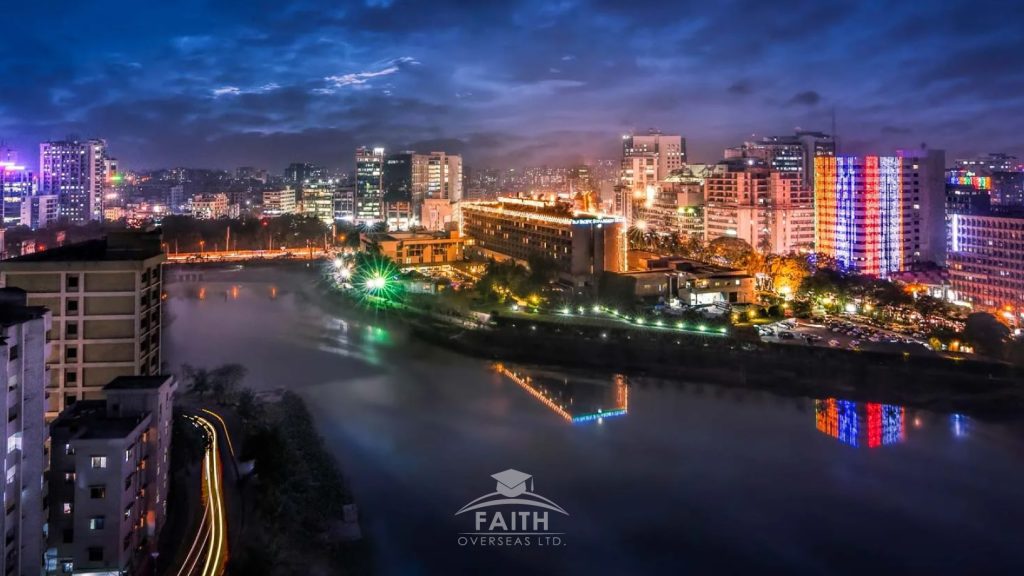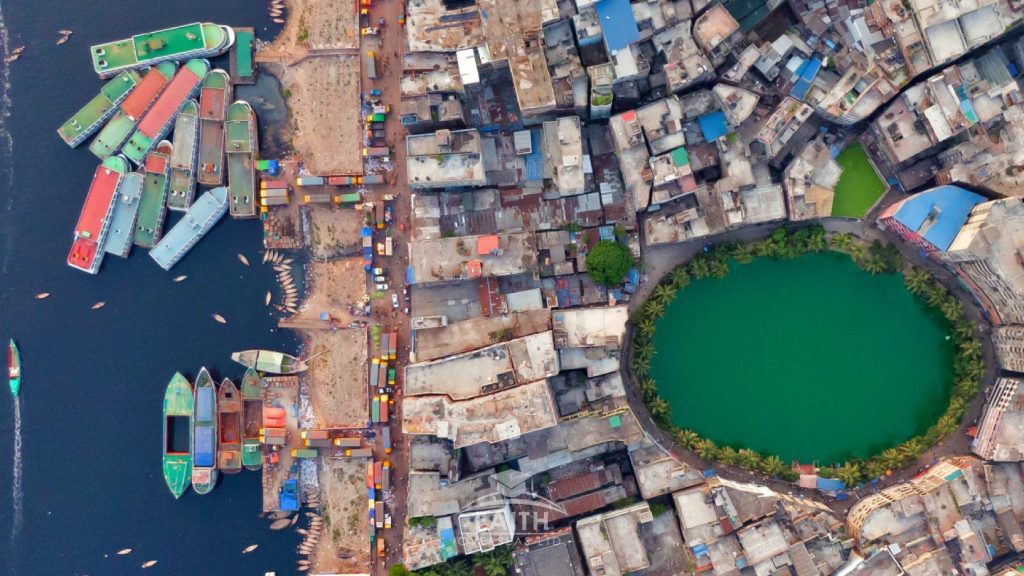Study In Bangladesh
About Bangladesh?
A country nestled in the midst of South Asia east of India, Bangladesh is home to 161.4 million people. Bangladesh is predominantly a Muslim country with significant influences of Hindu, Christian, and Buddhist communities. People from all backgrounds and beliefs are welcome in the decently diverse country and live together in harmony.
Over the years, Bangladesh has been hosting one of the largest religious gatherings called the Bishwa Ijtema where thousands of Muslims from around the world come together to pray in congregation annually.
A country well known for its rich culture and heritage, Bangladesh has numerous sights including but not limited to The Sundarbans and Cox’s Bazaar; the world’s longest sea beach. Bangladesh is quite well known for its impressive contribution to the ready-made garments industry, making up almost 84% of its foreign exchange earnings. Various other exports of the country include jute, leather goods, and tea.
The country has a reputation for offering a broad variety of foods as its citizens find great pleasure indulging in national delicacies. Since Bangladeshis have been traveling to other parts of the world recently and henceforth exposing themselves to international cuisines, they have brought back their experiences by launching restaurants and cafes that recreate such delicious international dishes. As a result, the food scene has become very rich in recent times.


Career Counseling

University Selection

Admission

Accommodation

Visa Application Guide

Air Ticket Issue

Airport Pickup

Language Course

Living In Bangladesh
- The City’s Cultural Richness
- Ease of Transport
- Well-paid jobs
- The world-renowned site to visit
- The Diversity of Neighborhoods
- Capital of café culture
- Plenty of activity
- World best museum
Education System In Bangladesh
The education system in Bangladesh comprises primary, secondary, and higher education. Students have the option to choose the language of instruction in the national curriculum; Bengali or English.
Primary and secondary education is compulsory for all individuals, which lasts about 12 years. After that, students are motivated to move onto higher studies in either public and private universities.
Besides following the national curriculum, students also have access to opt for International GCE (IGCSE and A-Levels) or International Baccalaureate (IB) at certain teaching institutions if they wish to do so.
International students from around the globe are encouraged to apply to higher educational institutions in Bangladesh for degrees that are globally accredited.
Study In Bangladesh


Bangladesh has various public and private universities alike, offering impressive undergraduate degrees. Some of the well-known public universities in Bangladesh include Dhaka University, Bangladesh University of Engineering and Technology.
For those interested in private universities, North South University is a good choice as all their undergraduate programs have certified American Accreditation.
Applicants have to sit for entrance examinations when applying to most universities in the country, as the competition is extremely high between candidates. At some institutions, students with stellar academic performance are exempted from writing entrance examinations.
Merit-based scholarships can be acquired based on outstanding high-school academic records in private universities. Financial aid-based scholarships are also available for less-fortunate candidates at certain universities.

Why Study In Bangladesh
- Impressive degrees globally accredited
- Diverse environment
- Merit-based scholarships are available
- Safe housing for international students
- Adaptable climate
- Work while you study
- Internship opportunities are available
- Friendly surrounding
- Low study and living costs

Scholarships In Bangladesh
Even though higher education in Bangladesh is fairly reasonable, numerous public and private universities offer different types of scholarships such as freedom fighter’s children’s scholarships, merit-based scholarships, and need-based scholarships (financial aid).


